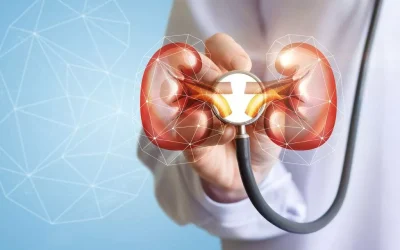Content
- Psychotherapy for PTSD and AUD
- Misdiagnosis of Complex PTSD
- Medical Links
- What is Alcohol Use Disorder?
- Get help for alcoholism today.
- Many People With PTSD Turn to Alcohol to Self-Medicate.
- Alcohol, PTSD, and Women
- Scientists identify a class of drugs that may prevent alcohol use disorder in people with PTSD
The center was established in 2019 thanks to a generous five-year grant from the National Institute on Alcohol Abuse and Alcoholism of the National Institutes of Health. In this interview conducted in anticipation of ELRIG’s Drug Discovery 2023 Conference, we spoke to Nick Clare, Vendor Strategy Work Group Lead for ELRIG, about what vendors can gain from attending ELRIG events, such as Drug Discovery 2023. Our free, confidential telephone consultation will help you find the best treatment program for you. We can also guide you in approaching a loved one who needs treatment. Reach out to a treatment provider for free today for immediate assistance. Through many decades, despite numerous definition changes for each, AUD and PTSD consistently co-occur.
It is possible that these two bodies of evidence represent two separate relationships between PTSD and AUD. Additionally, the conditional nature of the disorders, based on the exposure to an event or a substance, makes this a complex relationship for analysis, interpretation, and intervention for treatment. Mental health research supports that alcoholism and other substance abuse disorders rarely manifest in an individual without underlying causes. The recent ability for therapists and recovery centers to address both the physical issue of addiction and the cooccurring mental health issues has seen a dramatic increase in the success of those in recovery from alcoholism and substance abuse. This is especially true for those who have had a problem with alcohol in the past and are either recovered or it had not yet turned into a severe alcohol use disorder before the trauma was experienced. Our researchers at the Center for the Study of Alcohol Use Disorder and Traumatic Stress in NYU Langone’s Department of Psychiatry are striving to better understand the relationship between these two comorbid conditions.
Psychotherapy for PTSD and AUD
PTSD can be very difficult for a victim to work through, and an individual struggling with PTSD might turn to drugs or alcohol to escape or numb their symptoms. Research reveals a number of connections between the two disorders. Tull points out that hyperarousal symptoms are related to depressant drugs such as alcohol or marijuana. This reoccurring connection may be because these drugs give an anti-anxiety effect.3 However, there could also be genetic reasons that someone develops PTSD or struggles with substance use disorder.
Some studies suggest that alcohol consumption can increase the likelihood of the development of PTSD in women, due to the increased likelihood of exposure of traumatic events that occurs as a result of alcohol abuse. But research has shown that the ability to recover from traumatic experiences varies from person to person. Some traumatic events, particularly childhood abuse and sexual assault, are harder to move past than others. And for a wide variety of reasons that involve the type of trauma experienced, the duration, individual personality traits and support systems available to help with recovery, some people find that time doesn’t heal all wounds.
Misdiagnosis of Complex PTSD
If you’re struggling with alcoholism and PTSD, American Addiction Centers (AAC) can help you find treatment. Alcohol.org is a subsidiary of AAC, a nationwide provider of rehab centers. We’re here 24/7 to help guide you or your loved on through rehab and recovery. Submit your number to receive a call today from a treatment provider. Treatment providers are available 24/7 to answer your questions about rehab, whether it’s for you or a loved one. Submit your number and receive a free call today from a treatment provider.

Sixty-eight percent of Vietnam veterans who sought help for PTSD suffered from alcoholism. 1 in 3 veterans currently getting treatment for substance abuse suffer from PTSD. From 2003 to 2009, there was a 56 percent increase of veterans getting treatment for alcoholism. Due to the nature of traumatic events veterans experience such as being threatened, high stress environments, death, severe injuries, violence, and sexual trauma, veterans are often deeply impacted after combat.
Medical Links
The evidence suggests that there is no distinct pattern of development for the two disorders. Some evidence shows that veterans who have experienced PTSD tend to develop AUD, perhaps reflecting the self-medication hypothesis. However, other research shows that people with AUD or SUD have an increased likelihood of being exposed to traumatic situations, and they have an increased likelihood of developing PTSD.
Does alcohol calm the amygdala?
Unexpectedly, these authors also found that alcohol increased amygdala activity to neutral faces, concluding that alcohol may exert its anxiolytic effects by reducing the amygdala's ability to detect threatening information and/or by attenuating amygdala reactivity to threat (Gilman et al.
This durable comorbidity has been found in large, small, representative, and targeted samples. U.S. surveys, such as the St. Louis sample of the ECA,8 the NCS,16 and the NESARC,23 have consistently found relationships between alcohol problems and PTSD. This section provides an overview of commonly used definitions and how they have changed over time.
What is Alcohol Use Disorder?
In addition, blood biomarkers from the clinical trial are being compared with imaging markers. We’ve shown that there is potential to alleviate both disorders https://ecosoberhouse.com/article/ptsd-and-alcohol-abuse/ by targeting brain pathways that they share.” “We also plan to further investigate the role of the immune system in these disorders,” Roberto says.
- Going through this without coping skills or being prepared can cause an individual to go through duress as their past trauma compounds the already difficult mental and chemical process of stopping the use of alcohol.
- Attempting to stop drinking on your own can be extremely dangerous.
- Alcohol affects people differently, but it is certainly able to exacerbate the symptoms of PTSD.
If you or a loved one needs help with alcoholism, contact a treatment provider today to discuss available treatment options. Studies report increases in veteran alcohol use after sexual abuse and/or sexual assault endured in combat. 23 percent of female veterans have experienced sexual assault while in combat and may turn to drinking to self-medicate as a short-term solution. The ECA program reported that the lifetime prevalence of DSM-III alcohol abuse and dependence was almost 14%.14 Prevalence varied by location, from about 11% in New Haven and Durham to about 16% in St. Louis. Individuals who had problems with alcohol were almost three times as likely to have a co-occurring mental disorder as those with no alcohol problem.
The Link Between Alcohol Misuse and PTSD
Mary also failed to reschedule a subsequent missed session with Dr Steere. For example, in March, after Dr Zack Ishikawa had been away on vacation, Mary said she wanted to stop therapy. In that session, she said she was feeling considerably better since reducing her alcohol use and that family responsibilities required her full attention. She noted, however, that her husband expressed concern that her decision was driven by avoidance.
However, this association was no longer significant when the analysis controlled for other co-occurring mental health conditions in addition to the sociodemographic characteristics. Post-traumatic stress disorder (PTSD) is a mental health disorder caused by witnessing or experiencing a traumatic event. Those experiencing PTSD, many of whom may be veterans or the survivors of a natural disaster or violent act, might turn to drugs or alcohol to self-medicate feelings of fear, anxiety, and stress. Post-traumatic stress disorder is a serious mental health condition triggered by traumatic events.
First, the variable of how many individuals enter the military that are almost guaranteed to experience a traumatic event did not match the probability that other groups would encounter a trauma. Second, the culture of alcohol and self-medication present in military groups influences those with PTSD to use alcohol to self-medicate. This presented an argument that unbiased data collection could not occur. This is because people who use substances to avoid certain emotions may seem, on the surface, not to have any emotional problems. Led by Eugene M. Laska, PhD, and Carole Siegel, PhD, the Analytics and Biostatistics Core is responsible for managing and analyzing clinical trial data. Our researchers apply advanced statistical analyses in hypothesis testing and machine learning to estimate individualized predictions of response to topiramate.
- This durable comorbidity has been found in large, small, representative, and targeted samples.
- Even with new research coming out about C-PTSD, this disorder is commonly misdiagnosed.
- Comorbidity is common with posttraumatic stress disorder, and alcohol use disorder (AUD) is among the most common co-occurring disorders.
- Post-traumatic stress disorder (PTSD) and alcohol use can frequently co-occur.
This stems from an ingrained survival instinct designed to protect us and keep us alive in the presence of danger. When an individual experiences a traumatic event, a fear response is triggered and endorphin levels in the brain surge, enabling us to act, respond, and stay safe. This adjustment to the testing pool was accepted for two major reasons.

Recent Comments